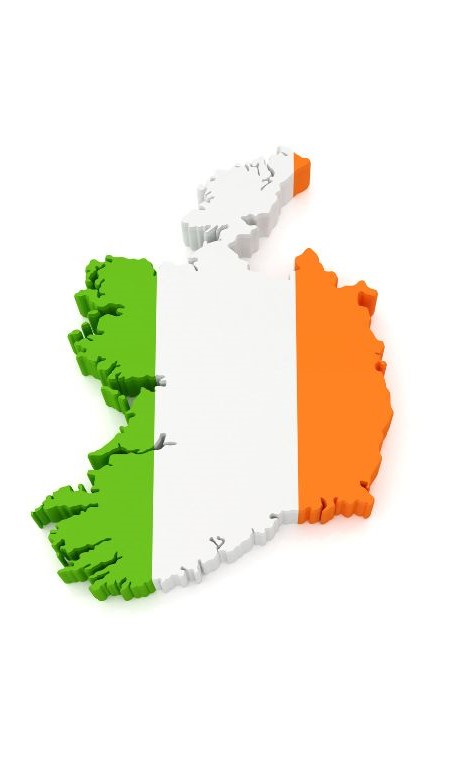Moving to Ireland from the UK
A Practical Guide to Moving to Ireland from the UK

Moving to Ireland from the UK is a popular choice for many British citizens looking to enjoy the charm of a neighbouring country with deep cultural ties. Thanks to the Common Travel Area (CTA), the process is relatively straightforward, with no visa requirements or restrictions on living, working, or studying in Ireland.
This guide aims to walk you through everything you need to know about relocating to the Republic of Ireland.
Why Consider Moving to Ireland from the UK?
Ireland offers a high quality of life, rich history, and stunning landscapes, making it an attractive destination for British expats. The shared language, similar legal systems, and proximity to the UK make the transition smoother than in other countries. Whether you're relocating for work, retirement, or simply a change of scenery, Ireland provides a welcoming environment with plenty of opportunities.
Understanding the Common Travel Area (CTA)
The Common Travel Area (CTA) is an arrangement between the UK and Ireland that allows citizens of both countries to move freely across the border without needing a visa or residence permit.
This means that as a British citizen, you can live, work, and study in Ireland without any restrictions on the length of your stay. You also have the right to access healthcare, social services, and education, just as Irish citizens do.
Finding a Place to Live in Ireland
When moving to Ireland from the UK, one of your first priorities will be finding accommodation. Ireland offers a variety of housing options, from city apartments to rural cottages. The housing market can be competitive, especially in popular areas like Dublin, Cork, and Galway, so starting your search early is advisable.
- Renting: Renting is a popular option, especially for those new to Ireland. Rental prices vary significantly depending on the location. Dublin tends to be the most expensive, while smaller towns and rural areas offer more affordable options. Websites like Daft.ie and MyHome.ie are good places to start your search.
- Buying Property: If you’re considering a long-term stay, purchasing a home might be a better option. Ireland’s property market is diverse, offering everything from modern city apartments to traditional countryside homes. Working with a local estate agent can help you navigate the buying process.

Working in Ireland
One of the benefits of moving to Ireland from the UK is the ease with which you can start working. There’s no need for a work visa or permit, and British citizens have the same employment rights as Irish citizens. Ireland’s economy is robust, with strong technology, finance, healthcare, and education sectors.
- Job Search: If you’re moving without a job offer, search on job sites like Jobs.ie, IrishJobs.ie, and LinkedIn. Networking is also a valuable tool, as many opportunities are filled through personal connections.
- Employment Rights: As an employee in Ireland, you’ll have access to the same rights and protections as local workers. This includes fair wages, paid holidays, and the right to join a union.
Healthcare in Ireland
When moving to Ireland from the UK, it’s important to understand how the healthcare system works. Ireland provides both public and private healthcare options. As a resident, you’ll have access to the public healthcare system, but many people opt for private health insurance to cover additional services and reduce waiting times.
- Public Healthcare: The Health Service Executive (HSE) runs Ireland’s public healthcare system. As a British citizen living in Ireland, you’ll be entitled to public healthcare services. However, depending on your income, some services may require a co-payment or fee.
- Private Healthcare: Many expats choose to take out private health insurance to cover the cost of private hospitals, specialists, and quicker access to care. Popular providers include VHI, Laya Healthcare, and Irish Life Health.
Education in Ireland
If you’re moving to Ireland from the UK with children, you’ll be pleased to know that Ireland has a strong education system. Free primary and secondary education is available to all residents. The curriculum is similar to the UK, and most children's transition should be smooth.
- Primary and Secondary Schools: Education in Ireland is free at the primary and secondary levels. Similar to the UK, the school year runs from September to June, and English is the primary language of instruction.
- Higher Education: Ireland is home to several world-renowned universities, including Trinity College Dublin, University College Dublin, and University College Cork. As a British citizen, you’ll have the same access to higher education as Irish students, including eligibility for student loans and grants.
Understanding Irish Taxes
When moving to Ireland from the UK, it’s essential to understand the tax implications. Ireland and the UK have a double taxation agreement, which means you won’t be taxed twice on the same income. However, you must register with the Irish Revenue Commissioners and obtain a Personal Public Service (PPS) number to start paying taxes in Ireland.
- Income Tax: Ireland operates a progressive income tax system, with rates depending on income level. Various tax credits and allowances are available, which can reduce your overall tax bill.
- Social Security: As a resident of Ireland, you’ll also pay social security contributions, known as PRSI (Pay Related Social Insurance), which cover benefits such as unemployment, illness, and pensions.
Cultural Adjustment and Lifestyle
Ireland is known for its friendly people, rich culture, and vibrant social life. While the language and many cultural aspects are familiar, there are still some differences to adjust to when moving to Ireland from the UK.
- Social Life: The pub is a central part of Irish social life, offering a place to meet friends and enjoy traditional music. Joining local clubs or groups can also help you integrate into the community.
- Driving: In Ireland, cars drive on the left side of the road, as in the UK. However, road signs are in English and Irish, and speed limits are in kilometres per hour, so adjusting may take some time.
- Weather: Ireland’s weather is mild but unpredictable, with frequent rain showers. Packing appropriately and keeping an umbrella handy is always a good idea.

Moving to Ireland with Pets
If you’re moving to Ireland from the UK with pets, you’ll be pleased to know that pets can move freely between the two countries, thanks to the CTA. However, your pets must meet certain health requirements, including being microchipped, vaccinated against rabies, and having a pet passport.
Final Steps
Once you’ve settled in, register with local services, such as your local council, GP, and, if necessary, your children’s schools. Ireland is a welcoming country with a strong sense of community, and integrating into local life will help you make the most of your move.
Conclusion
Thanks to the Common Travel Area (CTA), moving to Ireland from the UK is straightforward. With no visa requirements and the ability to live, work, and study freely, Ireland offers an attractive option for British citizens looking for a new place to call home.
Whether you’re drawn by the job opportunities, the beautiful landscapes, or the rich cultural heritage, Ireland provides a welcoming and vibrant environment for newcomers.


Expert Immigration and Tax Support for Moving to Ireland
Planning a move to Ireland from the UK? Our experts provide tailored support to ensure a hassle-free and compliant move. Contact us today!
Planning a move to Ireland from the UK? Our experts provide tailored support to ensure a hassle-free and compliant move. Contact us today!


